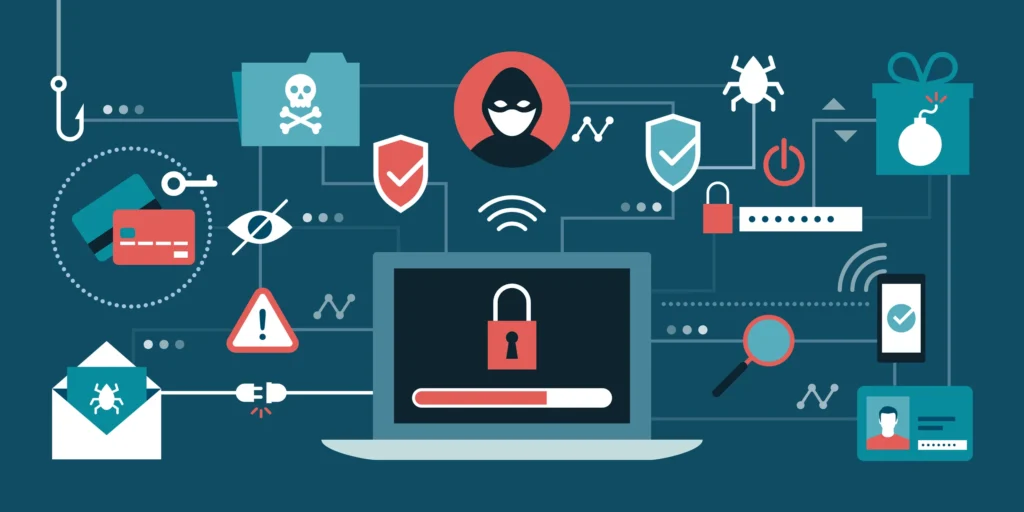Understanding Cyber Incident Simulations: Preparing Your Business for the Worst

Introduction
Cybersecurity threats are no longer hypothetical—they’re a reality for businesses of all sizes in Australia. Every day, new vulnerabilities are discovered, cybercriminals become more sophisticated, and businesses face mounting pressure to secure their operations against threats. For medium sized enterprises, the stakes are particularly high. A single breach can lead to financial losses, reputational damage, and significant operational disruption.
Traditional measures like multi-factor authentication, advanced threat protection, web filters, antivirus software and firewalls are important but are no longer enough to combat today’s advanced threats. This is where cyber incident simulations come into play. By mimicking real-world cyber incidents, these proactive simulations allow businesses to identify and address weaknesses in your response before they’re exploited.
Beyond Technology, Australia’s most trusted independent technology advisory for medium enterprises, specialises in cyber incident simulations that not only strengthen your organisation’s defences but also prepare your team for effective response. Cyber incident simulations aren’t just a technical exercise—they’re a critical component of a modern, robust cybersecurity strategy.
By engaging in these simulations, businesses can ensure that their security measures are effective, their staff are prepared, and their systems are resilient. It’s time to move beyond reacting to cyber threats and start preparing for them.
What Are Cyber Incident Simulations?
Cyber incident simulations are structured exercises designed to emulate your response to a real-world cyberattacks on an organisation's IT systems and processes. These simulations create controlled simulated environments where businesses can test their preparedness, identify vulnerabilities, and refine their incident response strategies.
At their core, cyber incident simulations mimic various attack scenarios—such as ransomware infections, data breaches, phishing campaigns, or Distributed Denial of Service (DDoS) attacks. These scenarios are tailored to an organisation's specific risks, ensuring that the simulation addresses the most relevant vulnerabilities and potential attack paths.
Unlike penetration testing, which focuses on identifying exploitable weaknesses in systems, cyber incident simulations take a broader approach. They consider not only the technical aspects of an organisation’s defences but also its people, processes, and overall incident response capabilities. This includes assessing how employees react to the scenario, how well recovery plans are executed, and how effectively communication flows during a crisis.
By incorporating tailored real-world attack scenarios, cyber incident simulations provide a deeper understanding of an organisation's security posture. Beyond Technology designs its simulations to challenge not only IT systems but also decision-makers and response teams, ensuring that the entire organisation benefits from the exercise.
The ultimate goal of a cyber incident simulation is to highlight weaknesses, enhance readiness, and provide actionable insights. By conducting these simulations regularly, businesses can maintain resilience and adapt to the ever-evolving threat landscape.
Benefits of Cyber Incident Simulations
Cyber incident simulations are not just a technical exercise—they are a strategic investment in your organisation’s resilience and long-term success. They offer businesses the opportunity to proactively understand and strengthen their defences, improve response times, and build organisational confidence in decisions while managing cyber threats.
1. Identifying Vulnerabilities Before Threats Exploit Them
One of the key benefits of cyber incident simulations is their ability to uncover hidden vulnerabilities within your IT processes, decision responsibilities and workforce. Whether it’s a missing documentation, outdated software, or gaps in employee training, simulations reveal these weaknesses in a controlled environment before they can be exploited by real-world attackers.
2. Enhancing Incident Response Preparedness
When a cyberattack strikes, every second counts. Simulations test your organisation’s ability to detect, contain, and mitigate attacks quickly. By running through realistic scenarios, your incident response teams can practice their roles, refine workflows, and ensure their actions align with your business continuity plans. This preparation reduces downtime and minimises damage during an actual incident.
3. Strengthening Employee Awareness and Training
People often represent the weakest link in cybersecurity. Simulations can help employees recognise threats, such as phishing emails or social engineering tactics, and respond appropriately. Beyond Technology’s tailored simulations can incorporate workforce education, ensuring your team becomes a first line of defence against cyber risks.
4. Demonstrating Compliance with Industry Standards
Regulatory frameworks, such as CPS-234, SOCI and the Australian Privacy Act, often require organisations to maintain robust cybersecurity practices. Conducting regular cyber incident simulations demonstrates your organisation’s commitment to compliance, helping you avoid penalties and build trust with stakeholders.
5. Building Organisational Confidence
Simulations provide leadership with a clear picture of the organisation’s security posture. Knowing that your defences and response plans have been tested builds confidence, not only within your team but also with clients, partners, and investors.
Cyber incident simulations are more than a security exercise—they’re a competitive advantage in today’s high-stakes digital landscape.
Key Components of a Cyber Incident Simulation
A successful cyber incident simulation requires careful planning and a structured approach. It’s not about testing technical systems—it’s about evaluating people, processes, and technologies holistically to ensure a coordinated and effective response. Here are the key components of a well-executed simulation:
1. Scenario Design
Each organisation faces unique threats based on its industry, size, and operations. The first step is designing realistic attack scenarios tailored to your organisation’s risk profile. This could include ransomware attacks, phishing campaigns, supply chain breaches, or Distributed Denial of Service (DDoS) incidents. Beyond Technology’s tailored simulations ensure scenarios are relevant and challenging, addressing real-world risks.
2. Testing Incident Response Plans
The simulation tests how well your incident response plans work in practice. This involves assessing whether your team can identify and contain threats effectively, recover critical systems, and communicate with stakeholders under pressure. Beyond Technology integrates these tests to identify gaps and provide actionable recommendations.
3. Technical and Process Evaluations
Simulations delve into your organisation’s IT systems to assess their security posture. Vulnerability scans, access control reviews, and stress tests can be conducted to pinpoint weaknesses. Additionally, process evaluations ensure your workflows and decision-making structures are efficient and effective during a crisis.
4. Employee Involvement and Awareness
Employees are a critical part of any cybersecurity strategy. Cyber incident simulations often include phishing tests and social engineering scenarios to evaluate employee awareness and train them to respond appropriately.
5. Post-Simulation Reporting and Action Plans
The most important component of a simulation is the feedback. Beyond Technology provides a comprehensive report detailing strengths, vulnerabilities, and recommendations for improvement. This report becomes the foundation for enhancing your organisation’s overall cybersecurity posture.
By addressing these components, cyber incident simulations provide a 360-degree view of your organisation’s readiness and ensure your team is equipped to handle real-world attacks.
How Cyber Incident Simulations Enhance Compliance
In Australia, businesses must navigate a complex web of cybersecurity regulations and compliance requirements. From the Australian Privacy Act to international standards like ISO 27001, maintaining compliance is essential to protecting sensitive data and avoiding legal repercussions. Cyber incident simulations play a critical role in ensuring businesses meet these obligations.
Demonstrating Compliance with Regulatory Standards
Regulations often mandate that organisations have robust incident response plans and conduct regular testing of their cybersecurity measures. Cyber incident simulations provide documented proof that your organisation is actively addressing compliance requirements. For example, organisations adhering to ISO 27001 can use simulations to demonstrate their commitment to maintaining an effective Information Security Management System (ISMS).
Strengthening Incident Response Protocols
Simulations test the effectiveness of your existing incident response protocols, helping identify gaps that could lead to non-compliance. By refining these protocols, your business can align its processes with regulatory frameworks, ensuring readiness to manage potential breaches without violating compliance standards.
Building Trust with Stakeholders
Clients, partners, and regulators expect businesses to take data security seriously. Conducting cyber incident simulations shows your proactive approach to safeguarding sensitive information. This transparency strengthens trust and reinforces your reputation as a responsible, compliant organisation.
Avoiding Financial and Reputational Penalties
Non-compliance with cybersecurity regulations can result in hefty fines and damage to your brand. Simulations help prevent these outcomes by ensuring your organisation’s practices are aligned with both legal requirements and industry best practices.
By incorporating regular cyber incident simulations, businesses can stay ahead of evolving compliance demands while building a resilient, trustworthy foundation for their operations.
The Role of Beyond Technology in Cyber Incident Simulations
Beyond Technology stands as a trusted partner for medium enterprises in Australia, offering tailored cyber incident simulations that go beyond traditional testing. With a focus on aligning simulations to real-world business risks, Beyond Technology ensures that organisations not only identify vulnerabilities but also build robust defences to address them.
Customised Scenarios Aligned with Your Business
Unlike one-size-fits-all solutions, Beyond Technology designs simulations that reflect the unique challenges and threats faced by your organisation. Whether it’s testing against ransomware attacks, phishing schemes, or supply chain vulnerabilities, their approach ensures relevance and impact. This tailored methodology helps businesses prioritise the most pressing risks in their cybersecurity strategy.
Collaborative Approach to Strengthening Defences
Beyond Technology doesn’t just deliver reports—they collaborate with your team to turn insights into action. Simulations are conducted with full transparency, involving key stakeholders across IT, leadership, and compliance teams. This ensures that everyone is aligned and prepared to respond effectively to real-world incidents.
In-Depth Reporting and Strategic Recommendations
After each simulation, Beyond Technology provides comprehensive reports that highlight your organisation’s strengths, weaknesses, and areas for improvement. More importantly, these reports include actionable recommendations that enable businesses to implement changes quickly and effectively. From technical fixes to process enhancements, the guidance is clear and pragmatic.
Expertise Rooted in Independence
As a technology-agnostic advisory firm, Beyond Technology offers unbiased advice free from vendor influence. Their independence ensures that recommendations are based solely on what’s best for your organisation, not tied to any specific product or service.
Empowering Medium Enterprises to Succeed
Medium enterprises often lack the internal resources to tackle complex cybersecurity challenges. Beyond Technology bridges this gap by providing expertise, tools, and ongoing support to build resilient, compliant systems that protect against evolving threats.
With Beyond Technology’s tailored approach, cyber incident simulations become more than a security exercise—they’re a pathway to long-term success and confidence in your cybersecurity strategy.
FAQs Answered:
What is a cyber incident simulation?
A cyber incident simulation is a structured exercise designed to mimic real-world cyberattacks in a controlled environment. These simulations test an organisation's preparedness, from detecting threats to responding effectively and recovering quickly. Beyond Technology's simulations are tailored to your business, helping you identify vulnerabilities and enhance your security posture.
Why are cyber incident simulations important?
Simulations allow businesses to uncover weaknesses in their cybersecurity measures, refine incident response protocols, and train staff to recognise and respond to threats. By proactively addressing vulnerabilities, you reduce the risk of costly breaches and operational disruptions. Beyond Technology helps organisations use these exercises to build resilience and meet compliance standards.
What types of scenarios are tested in a simulation?
Common scenarios include ransomware attacks, phishing campaigns, Distributed Denial of Service (DDoS) incidents, and supply chain breaches. Beyond Technology designs these scenarios based on your organisation’s specific risks, ensuring relevance and maximum impact.
How often should businesses conduct cyber incident simulations?
Regular simulations—at least annually—are recommended to keep up with evolving threats and ensure that your incident response strategies remain effective. Beyond Technology helps businesses establish a schedule that aligns with their risk profile and compliance needs.
How do simulations differ from penetration testing?
While penetration testing focuses on identifying technical vulnerabilities, cyber incident simulations take a broader approach. They don’t focus on IT systems but on the processes, policies, and people involved in identifying, managing and recovering from cyber incidents. Beyond Technology provide a comprehensive view of your organisation’s security readiness.
Can cyber incident simulations help with compliance?
Yes. Simulations demonstrate your commitment to cybersecurity best practices and regulatory compliance, such as CPS-234, SOCI, ISO 27001 and the Australian Privacy Act. Beyond Technology ensures that simulations align with these standards, providing valuable documentation for audits and stakeholders.



